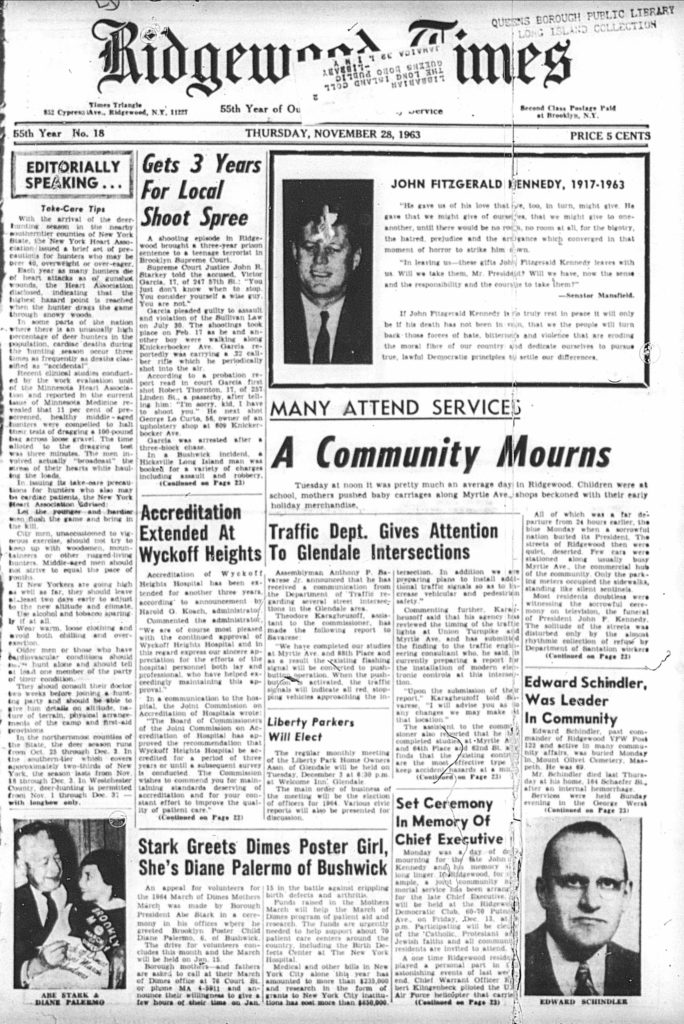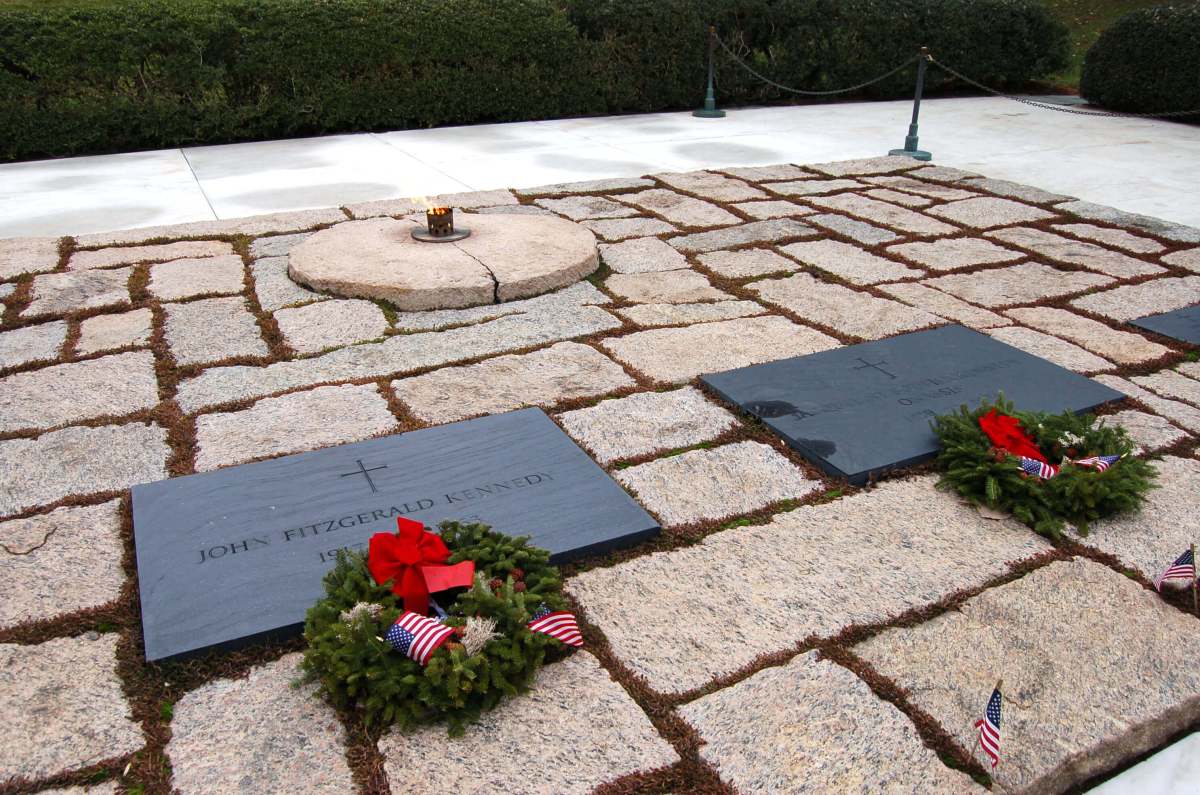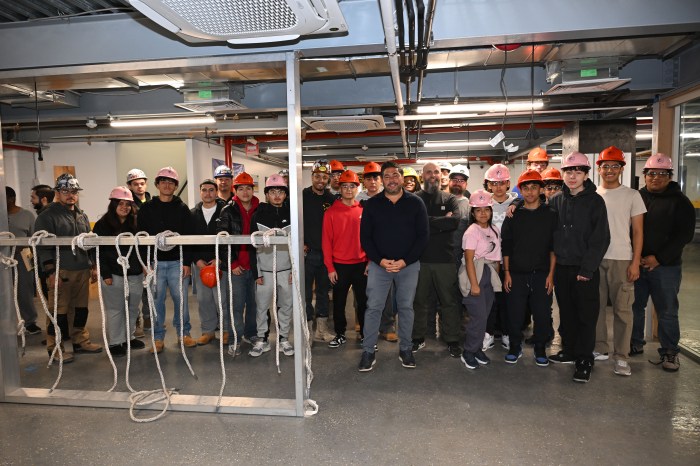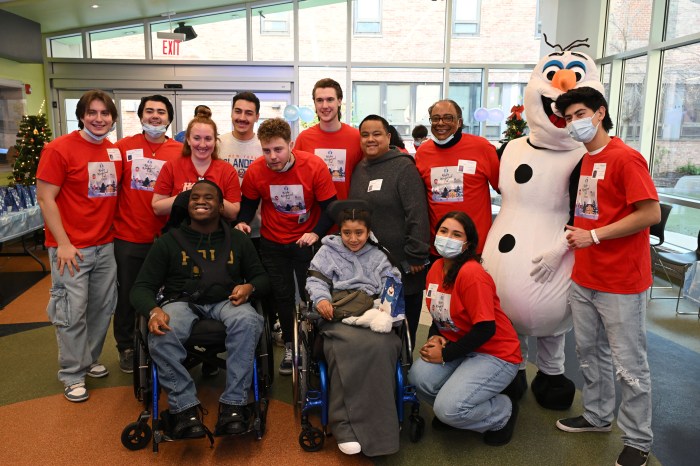They call it a flashpoint memory: a profound event in one’s life in which they can recall precisely where they were and what they were doing when it occurred.
For Baby Boomers in Queens and beyond, the date of Nov. 22, 1963 is a horrific flashpoint memory. Many of them can still vividly recall the moment they heard about the assassination of President John F. Kennedy as if it had occurred only a few days ago.
The young president was slain while traveling in an open car motorcade through the streets of Dallas, Texas. His death plunged the nation into a state of mourning not seen since the death of President Franklin D. Roosevelt 18 years earlier.
Businesses closed up shop early that Friday afternoon. Most sporting events were cancelled. People gathered around their living room television sets the entire weekend to watch coverage of Kennedy’s death, his public wake at the Capitol that Sunday and his funeral on Monday.
Like many other major national stories, the Ridgewood Times sought to capture the neighborhood’s mood following the Kennedy assassination. The front page of the Nov. 28, 1963 Ridgewood Times featured a top story titled “A Community Mourns,” noting that “many attend services” in memory of the slain president.
The full article follows below:
Tuesday at noon it was pretty much an average day in Ridgewood. Children were at school, mothers pushed baby carriages along Myrtle Ave., shops beckoned with their early holiday merchandise.
All of which was a far departure from 24 hours earlier, the blue Monday when a sorrowful nation buried its President. The streets of Ridgewood then were quiet, deserted. Few cars were stationed along usually busy Myrtle Ave., the commercial hub of the community. Only the parking meters occupied the sidewalks, standing like silent sentinels.
Most residents doubtless were witnessing the sorrowful ceremony on television, the funeral of President John F. Kennedy. The solitude of the streets was disturbed only by the almost rhythmic collection of refuse by Department of Sanitation workers and they seemed more subdued than is their custom. A few youngsters tossed footballs in schoolyards, and that was it.
It had been an unusual weekend, beginning Friday afternoon with the disbelief. Surely nobody would shoot the President, and he couldn’t die. That’s what they were saying on street corners and in taverns. But somebody did, and he died and that is now history.
Next day, the usual Saturday hustle-bustle was somehow missing, and the community grew even more respectful Saturday evening, as organizations by the dozens cancelled out carefully planned festive occasions. Nobody felt like dancing or dining or having sociable drink or doing anything. And the community went to sleep early.
Those organizations that held meetings dispensed with the regular course of business to pay tribute to their dead President. And there was no frivolity.
Churches of all denominations accommodated larger numbers of worshippers than normally Sunday. In some cases, persons were required to stand in the rear portions of the churches, but they remained and they prayed. Many returned to their houses of worship in the evening.
Then it was Monday, the day of mourning proclaimed by President Lyndon B. Johnson. And Ridgewood mourned. Stores were closed everywhere, and on each door was a simple, effective message, something like, “Closed in memory of our great President.”
People began appearing on the streets again after the burial and many walked in the sunlight of Myrtle Ave. But it was more like a Sunday stroll, for few shops reopened.
And nobody seemed to care for most had serious things on their minds. And that’s the way it was until Tuesday.

The front page of the issue also featured a memorial box with Kennedy’s image and a tribute from Montana Senator Mike Mansfield, a Brooklyn native who at the time served as Senate majority leader.
“He gave us of his love that we, too, in turn, might give,” Mansfield was quoted. “He gave that we might give of ourselves that we might give to one another, until there would be no room, no room at all, for the bigotry, the hatred, prejudice and the arrogance which converged in that moment of horror to strike him down.”
Following Mansfield’s quote, the Ridgewood Times wrote, “If John Fitzgerald Kennedy is to truly rest in peace, it will only be if his death has not been in vain, that we the people will turn back those forces of hate, bitterness and violence that are eroding the moral fibre (sic) of our country and dedicate ourselves to pursue true, lawful Democratic principles to settle our differences.”
If you have any remembrances or old photographs of “Our Neighborhood: The Way It Was” that you would like to share with our readers, please write to the Old Timer, c/o Ridgewood Times, 38-15 Bell Blvd., Bayside, NY 11361, or send an email to editorial@ridgewoodtimes.com. Any print photographs mailed to us will be carefully returned to you upon request.




































